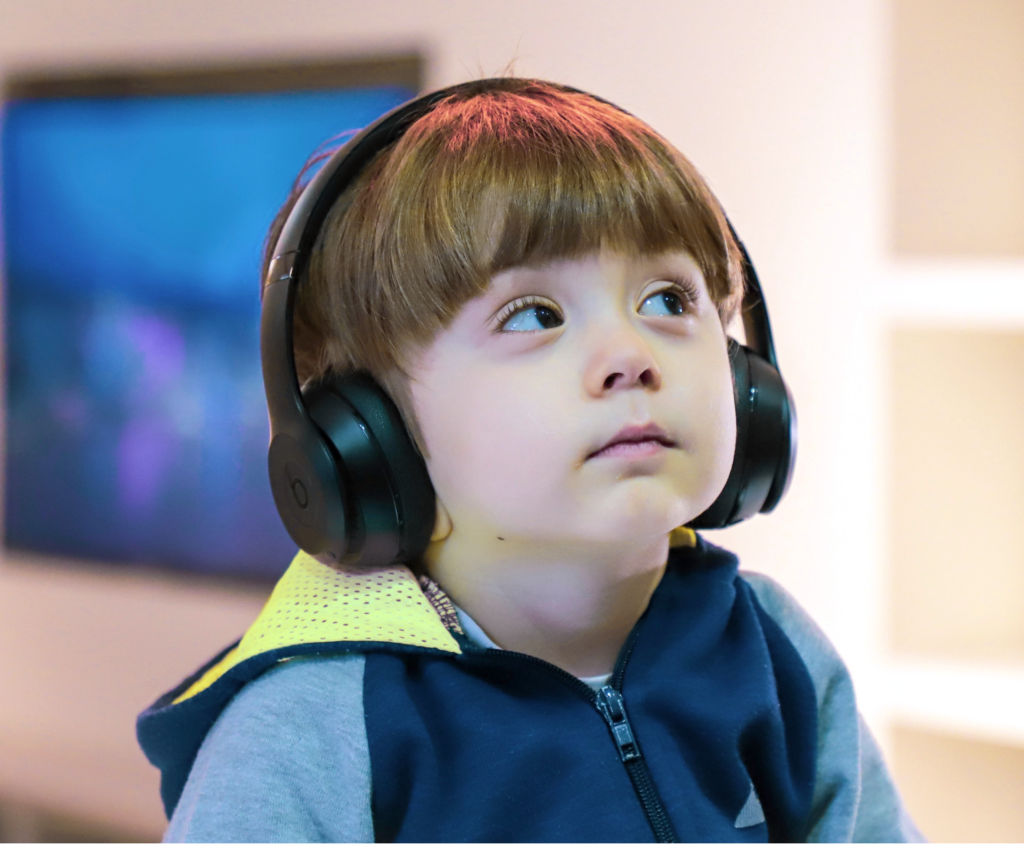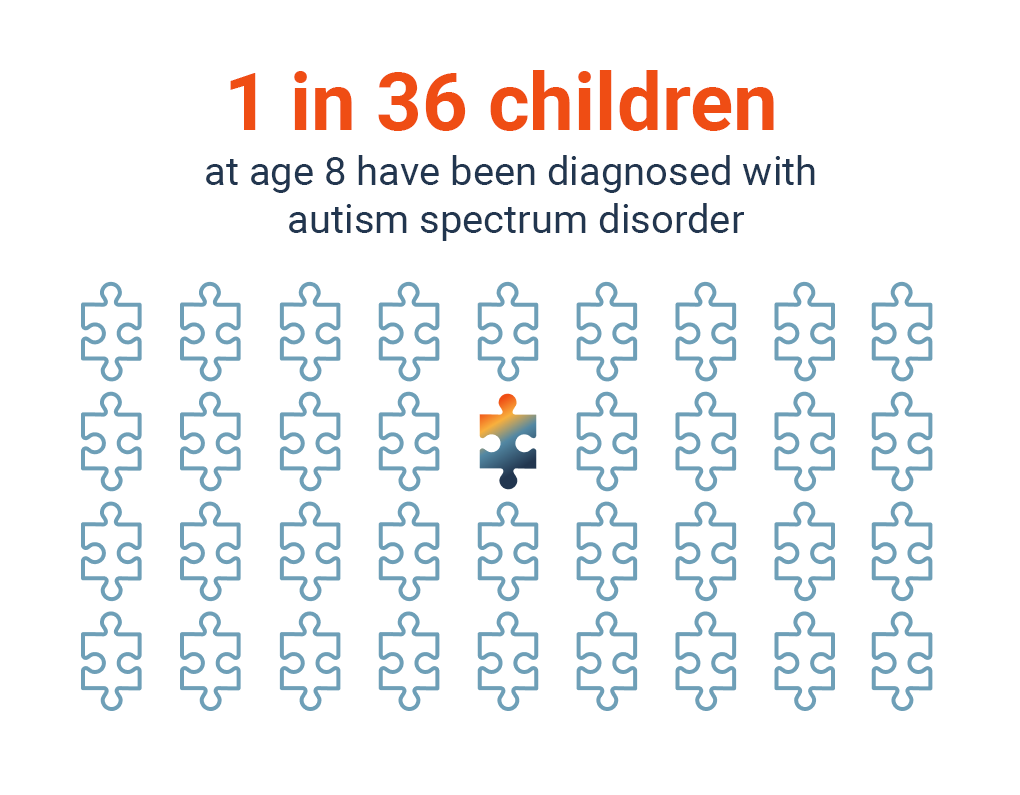Autism Spectrum Disorder

Autism spectrum disorder, a neurodevelopmental disorder, is characterized by impaired social communication and altered behavioral patterns, including increased irritability. Approximately 1.8 million U.S. children and adolescents ages three through 17 and over five million adults in the United States are living with autism spectrum disorder.
Because autism spectrum disorder is a spectrum disorder, each person with autism has a distinct set of strengths and challenges. Some people with autism spectrum disorder may live entirely independently, while others require significant support in their daily lives. For those whose lives are greatly impacted by the social communication deficits that are characteristic of autism spectrum disorder, there no no known therapeutic options and no approved FDA medications to treat the core symptoms of autism spectrum disorder.
Two dopaminergic atypical antipsychotics (risperidone and aripiprazole) are FDA approved to treat irritability associated with autism spectrum disorder. These drugs can improve behavior in some children, but can also be associated with significant side effects, including weight gain, sedation, gynecomastia, and movement disorders. These drugs block the brain’s receptors for dopamine and serotonin, but are ineffective in treating the core social features of the disorder and symptoms.
MapLight is making rapid progress toward the treatment of core symptoms of autism spectrum disorder. Our platform has demonstrated the promising potential of ML-004 for the improvement of social communication deficits and irritability in multiple animal models of autism spectrum disorder. ML-004 is now in a Phase 2 trial to assess whether it can effectively treat core symptoms in adolescents and adults with autism spectrum disorder.




